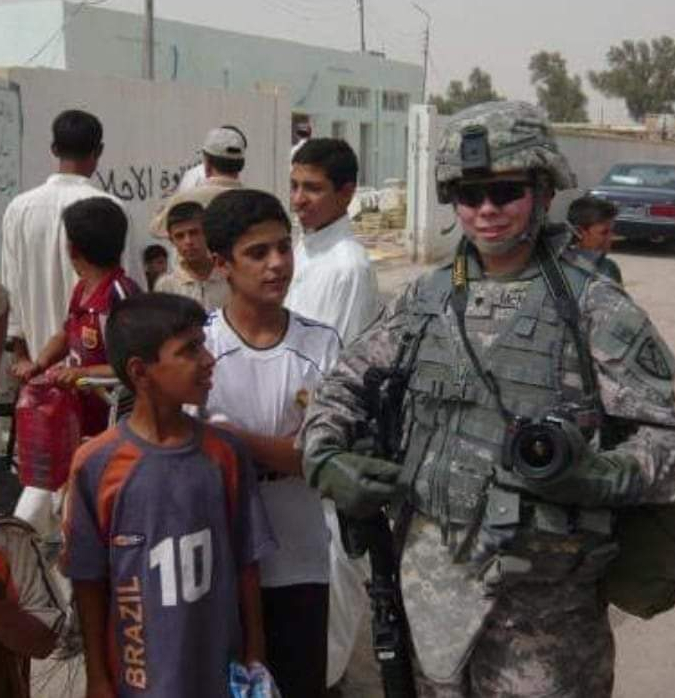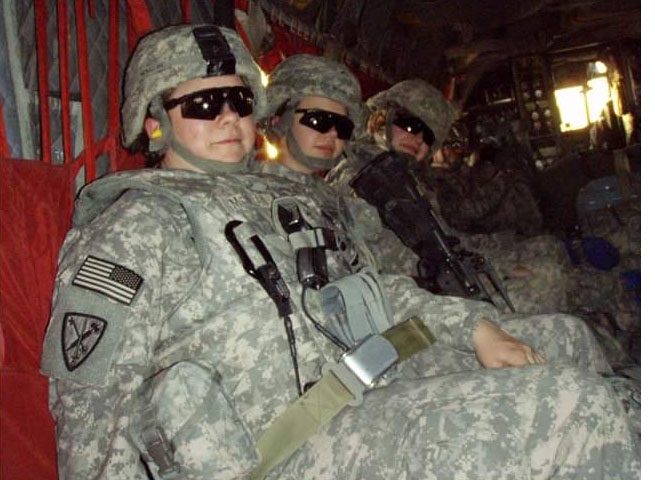Veterans Struggling with Food Insecurity Find Help, Hope through Wounded Warrior Project Programs and Partners

Amie McMillan is an Army combat veteran who medically retired early in her career. When she separated from the military in 2014, she struggled to make ends meet and experienced food insecurity during the first few years of civilian life.
“It wasn’t much of a transition, I basically just signed my papers to leave Fort Bragg, and that was it,” Amie said. “I had no contacts and no support. It was a struggle.”
At the time, Amie was a young single mom with no peers to lean on. She returned to her civilian family in Jacksonville, Florida, and felt misunderstood and isolated.
Amie recalls she didn’t know anyone in Jacksonville and didn’t know where to turn for help. Pride kept her from requesting assistance. She stayed with her mom until she was able to afford baby necessities and her own apartment.
To complicate her situation, her VA disability benefits made her ineligible for food stamps. She struggled with childcare costs, finding work, and figuring out how to go back to school to finish her mechanic training.
Then the pandemic hit, and amid a state of emergency, she became eligible for government assistance to stay afloat. However, after the state of emergency was lifted, she went back to a limited income for her and her two children. This became extremely difficult when she contracted COVID-19 and had to take care of herself.
Despite the adversity, Amie is optimistic about the future. And she credits Wounded Warrior Project® (WWP) for helping her move forward in a positive direction through career counseling and referrals to financial assistance.
Not alone
The nonprofit Feeding America serves more than 46 million people in this country, or 1 in 7 Americans – including 12 million children. While we know that children and young families can struggle with food insecurity, hearing about American veterans going hungry can be difficult to comprehend. Yet, it’s a long-term problem.
The economic fallout of the COVID-19 pandemic only made things worse. For instance, the number of financial assistance requests WWP received to alleviate food insecurity increased 144% from pre-pandemic levels. During the same period, the amount of direct-to-veterans financial assistance more than doubled.
Even before the pandemic, in a 2019 survey by the Military Family Advisory Network (MFAN), 12.5% of active-duty military families experienced food insecurity. That percentage ballooned to 20% in 2020 after the start of the COVID lockdowns. Among veterans, the picture is more inconsistent. It depends on the study. MFAN also reports women and minorities are affected at higher rates than their counterparts. Needs are also more urgent in families where a military spouse wants to work but is unable to secure employment.

The persistent trend is reason for concern, especially when servicemen and women who recently separated from the military are often among the most vulnerable.
“Food and homelessness are the No. 1 priority,” said Liliana Blyar, WWP Emergency Financial Assistance manager. “We triage those needs like you would see done in an ER, making food and shelter a top priority.”
Dealing with a lack of basic needs can cause significant stress for warriors and their families. WWP provides support in the form of financial assistance, career counseling, and mental health care to help stabilize families.
Specific programs in mental health, such as WWP Talk, Project Odyssey, and Warrior Care Network offer other paths to emotional and financial stability.
Amie knows getting help is key, and she empathizes with other veterans who struggle.
“At the beginning, I was all by myself and felt all alone,” Amie said. “It wasn’t until I joined Wounded Warrior Project that I started having some kind of direction. They told me about programs, they emailed a list of resources, they gave me on-the-phone help. The career transition program was a game changer. Had I had that as soon as I got out, things would have been different.”
Through support from WWP and local veterans service organizations, Amie tapped into a variety of resources. “The other struggle in my life since being discharged from the Army has been trying to feel like part of a team again,” Amie added. “The events that Wounded Warrior Project organizes for veterans are truly a lifesaver. In 2022, WWP has gotten not only me out of the house, but my kids as well. We have been able to network with other veterans, share our stories, and just bond as veteran families.”
Find out about other ways to give back to veterans and help them achieve financial stability.
Contact: Raquel Rivas – Public Relations, rrivas@woundedwarriorproject.org, 904.426.9783
About Wounded Warrior Project
Since 2003, Wounded Warrior Project® (WWP) has been meeting the growing needs of warriors, their families, and caregivers — helping them achieve their highest ambition. Learn more.